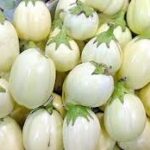Protein is one nutrient that every human being needs to adopt into their diet, no matter their age or lifestyle. It’s the building block of muscles, bones, skin, enzymes, and hormones. It supports immune function, helps repair tissues, and keeps you fuller for longer, so you’re not snacking on empty calories all day.
The average adult woman is recommended to consume approximately 46 grams of protein daily, while men should aim for around 56 grams, depending on their level of physical activity.
While we all know that eggs are the most popular go-to protein (containing about 13g of protein per 100g), they’re not the only affordable or effective option, especially in Nigeria, where local, plant-based proteins are not only easy to find but also cheap and versatile.
So, here are some of the cheapest sources of protein apart from eggs that you can start eating more often:
1. Brown Honey Beans – 23.5g of protein per 100g
This is one of Nigeria’s most loved types of beans due to its sweet flavour. Brown honey beans, also known as “ewa oloyin” in Yoruba, are naturally sweet and cook into a creamy, satisfying texture that works beautifully for a simple porridge or even as a side dish.
It packs a serious protein punch with about 23.5 grams per 100g. It’s filling, nourishing, and easy on the pocket. You can soak it overnight to reduce cooking time and help with digestion.
2. Soya Beans – 36g of protein per 100g
With 36g of protein per 100g, soya beans have more protein than beef! Soya beans can be roasted as a crunchy snack, blended into milk, or made into tofu (which you can make at home, if you’re up for a kitchen adventure).
In some parts of Nigeria, soybeans are also mixed into pap (ogi) to make it more nutritious for children. It’s cheap, filling, and incredibly nourishing.
3. Locust Beans – 32.6g of protein per 100g
Locust beans, also called “Iru” in Yoruba, are typically used as a seasoning in traditional soups like okra, ogbono, and ewedu. What many people don’t know is that this pungent local ingredient is actually a protein bomb.
With 32.6g per 100g, it does far more than just flavour your food, as it also significantly boosts its nutritional content. A small spoonful goes a long way, so it lasts long and costs so little.
4. Peanuts/Groundnut – 26g of protein per 100g
That garri and groundnut combo you snack on is actually more nutritious than you probably think. Groundnuts (or peanuts) are high in protein, containing about 26g per 100g, and they’re also rich in healthy fats, which help you stay full for longer. You can blend them into soups, make peanut butter at home, or just munch on them roasted.
Be careful with portion size if you’re watching your fat intake because they are calorie-dense. Even though groundnut is a fantastic, affordable source of plant-based protein and healthy fats (especially monounsaturated fats which are good for the heart), it’s easy to eat a lot of it and quickly rack up calories without even realising it especially if you’re munching on it as a snack.
5. Oats – 13.15g of protein per 100g
Oats might not be the first thing you think of when you hear protein, but they’re actually a decent plant-based option. With around 13.15g per 100g, eating oats is an easy way to incorporate more protein into your daily meals.
You can have them hot, cold, blended into smoothies, baked into snacks, or made into overnight oats with fruits, yoghurt or milk. You can get creative with toppings like fruit and dates to make it sweeter.
6. Millet – 11g of protein per 100g
Millet is one of the oldest grains in African cuisine. It’s used to make pap (kunu or fura) and also cooked like rice or used to eat swallowed.
Although it has a lower protein count compared to others on this list (11g per 100g), it remains a healthy and budget-friendly choice that provides fibre, iron, and essential minerals.
7. Egusi (Melon Seeds) – 27.5g of protein per 100g
Egusi soup is a national treasure in Nigeria, and now we know it’s also a protein-rich dish. With 27.5g of protein per 100g, melon seeds are super nutritious. Often combined with meats, vegetables, and swallows like eba or pounded yam, egusi contributes a significant protein load on its own.
If you’re vegan or vegetarian, you can prepare egusi without meat and still get all the benefits.
Protein doesn’t have to come in a plastic-wrapped packet or a boiled egg. In Nigeria, we’re lucky to have access to traditional ingredients that are both rich in protein and very affordable. From brown honey beans to soybeans, groundnuts, and even Iru, you can meet your protein needs on a tight budget.



